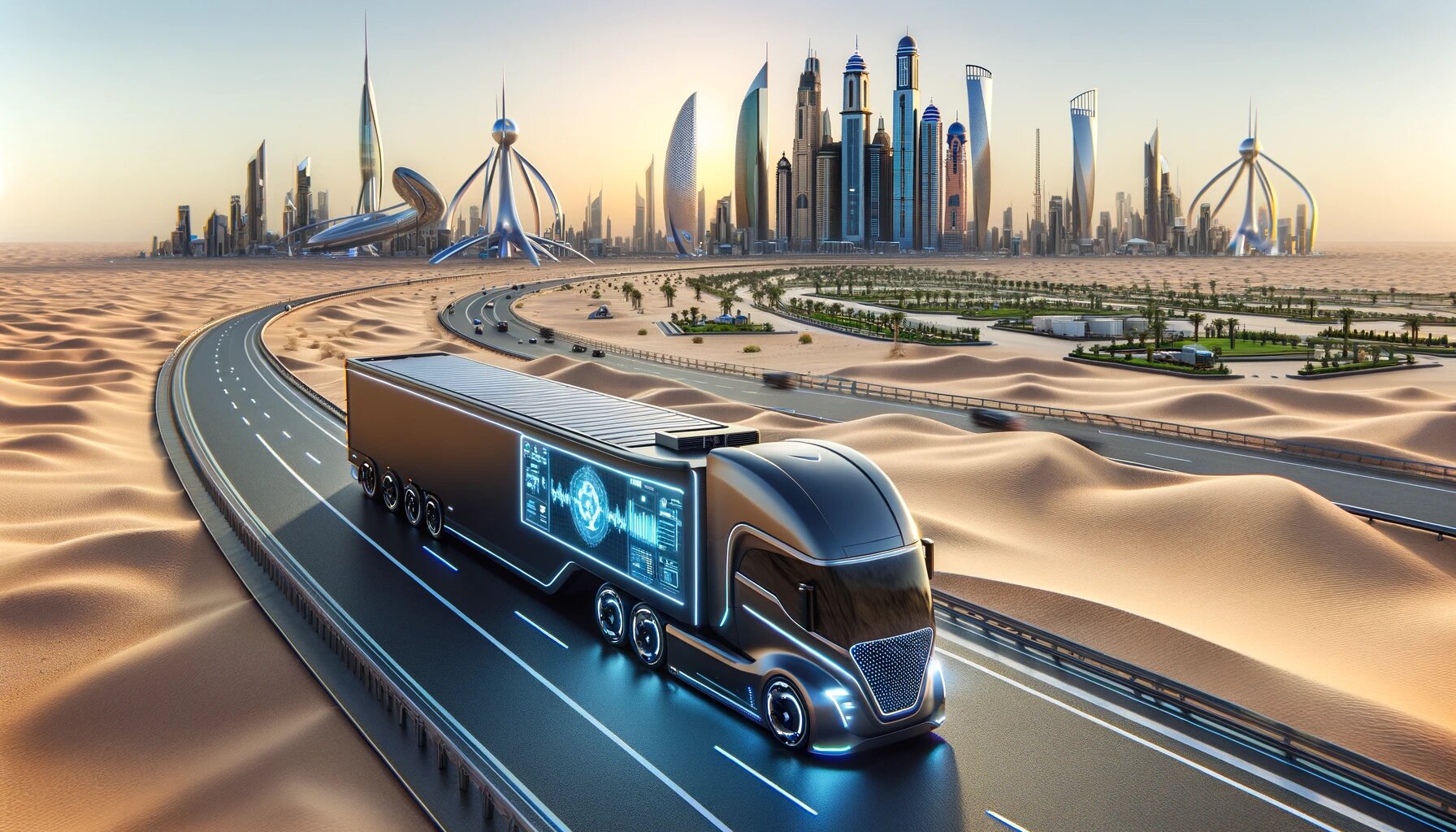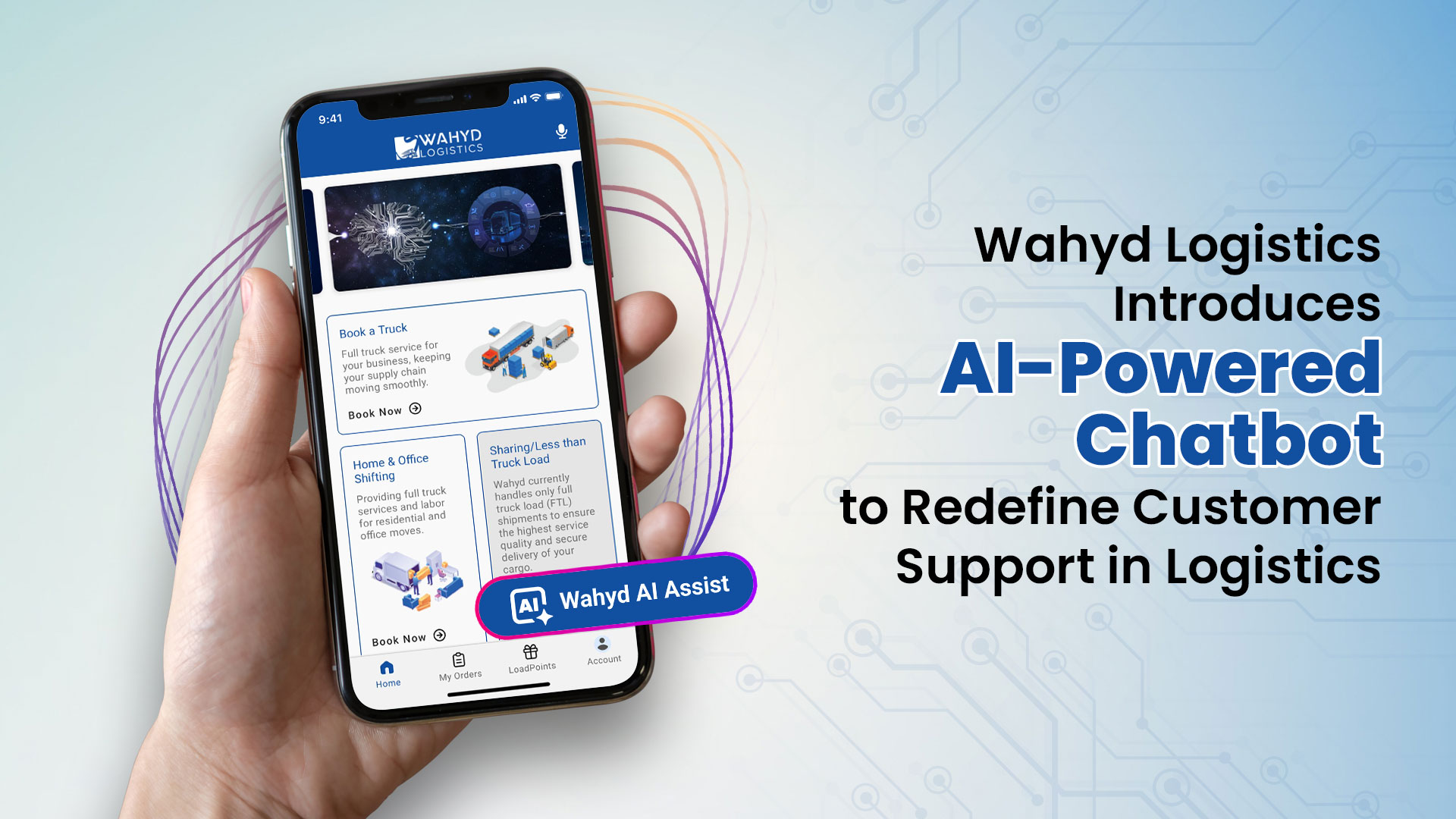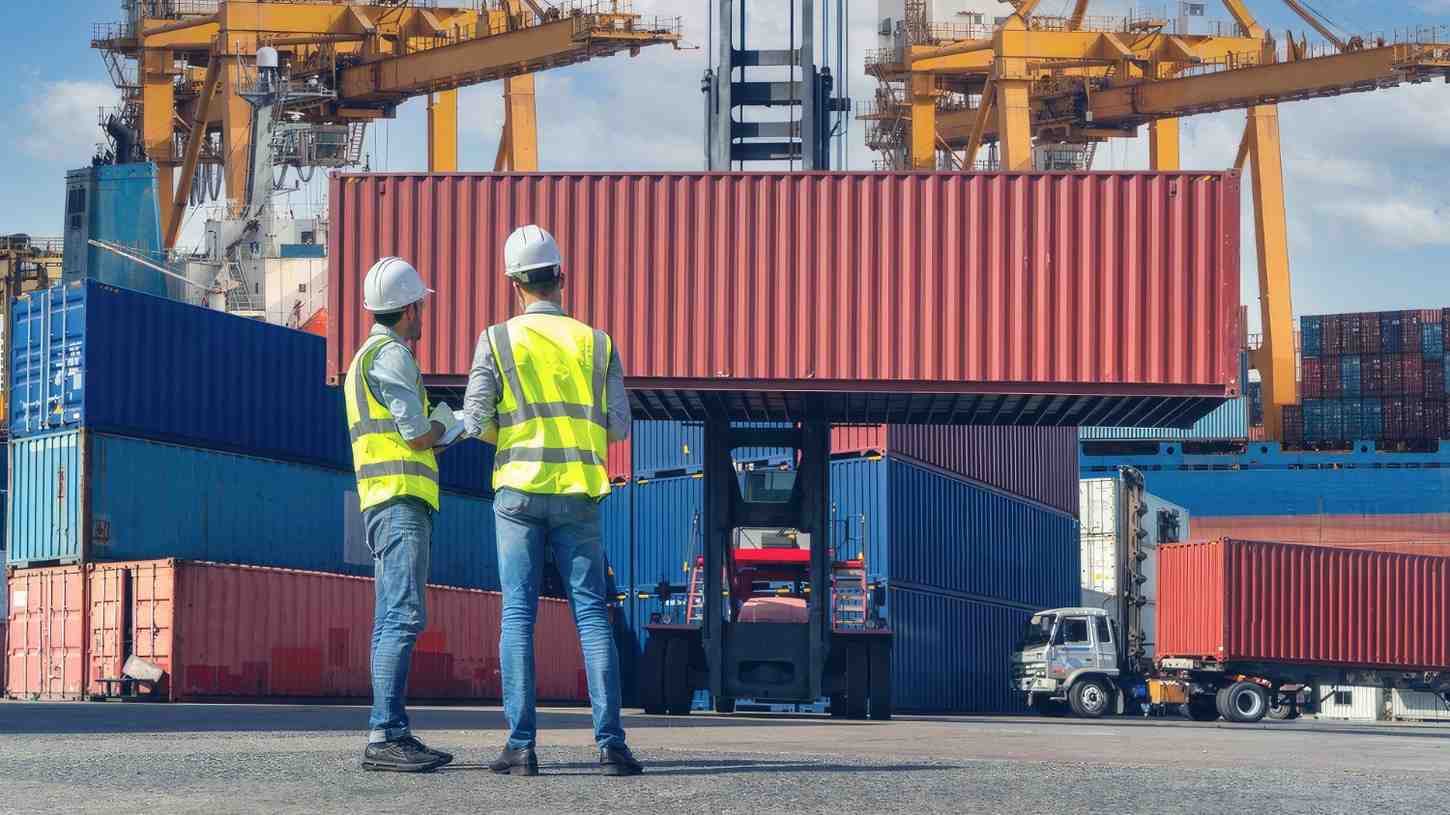
Today, let’s dive into something that is truly the heartbeat of the Gulf Cooperation Council’s (GCC) economy – the trucking industry. Covering powerhouses like Saudi Arabia, Kuwait, the United Arab Emirates, Qatar, Bahrain, and Oman, this industry is more than just trucks and roads; it’s about the pulse of commerce in this dynamic region.
The trucking environment here isn’t what it used to be. It’s evolving, growing, and embracing the future. In this blog, we’re going to unwrap the layers of this change, looking at how technology is shaking things up, the trends that are shaping the now and the next, and what it all means for the future of trucking in the GCC.
Trucks are the unsung heroes, ensuring that store shelves are never empty and businesses keep humming along. They bring in the essentials, the luxuries, and everything in between.
As we look ahead, the trucking industry is standing at the crossroads of a major transformation. We’re talking about big changes here – innovative tech, new regulations – stuff that’s set to completely revamp how trucking rolls in the GCC. Please stick with us as we explore this exciting journey, right here on this blog.
Current State of Trucking in the GCC
Overview and Challenges
The trucking scenario in the Gulf Cooperation Council (GCC) region is pretty lively and has taken off in recent years. Thanks to the booming economy in the area, the crucial role of logistics in tying together big cities and industrial zones, and the ever-growing appetite for consumer goodies, this sector is buzzing.
You’ve got everyone from giant, international logistics giants to small, local transport firms hustling in this space, all chipping in big time to the region’s financial well-being.
But let’s not sugarcoat it – this gig has its own set of headaches. For starters, the GCC weather is no joke – we’re talking serious heat and dry-as-a-bone landscapes that make day-to-day operations a tough nut to crack.
Navigating regulations adds complexity. Despite a positive trend, rules vary across GCC countries, creating a cross-border puzzle. The landscape gains intricacy with shifts in global politics and economics, introducing uncertainty.
Market Size and Key Players
The trucking market in the GCC region isn’t just big, it’s bustling with opportunities and poised for considerable growth. As the population ticks upward, so does the appetite for consumer goods.
This surge means there’s a bigger call than ever for transportation and logistics solutions that are not just effective but also efficient.
In this dynamic market, the key players are quite versatile, juggling a range of operations. They’ve got their hands full managing both short-haul within local landscapes and long-haul journeys that cross international borders.
It’s a balancing act, ensuring that both domestic and international demands are met with equal intensity.
But that’s not all that’s happening here. The GCC trucking situation is riding the wave of innovation. New tech is rolling in, bringing with it fresh business models that are starting to redraw the traditional boundaries of the trucking world.
It’s an exciting time, as these changes promise to reshape how goods move across this vibrant region.
Technological Advancements in Trucking
The trucking industry in the GCC, mirroring global trends, is witnessing a technological revolution. This shift is not just enhancing operational efficiency but also redefining the logistics landscape.
The adoption of these technologies is driven by the need to optimize routes, reduce costs, and improve safety standards. Tech transparency in logistics plays a crucial role in building customer trust.

Key Technologies in the GCC Trucking Sector
Telematics and Fleet Management Systems
These systems are at the forefront of revolutionizing vehicle management in the GCC. They deliver instant updates on vehicle locations, fuel consumption, and driver behavior.
In regions like the GCC, where trucks often traverse long distances through arid and isolated areas, the significance of telematics cannot be overstated. It’s instrumental in plotting the most efficient routes and safeguarding drivers.
This technology isn’t just about tracking; it’s about optimizing journeys and ensuring safety in some of the most challenging driving conditions.
Autonomous and Semi-autonomous Trucks
While fully autonomous trucks are still a developing technology, semi-autonomous features like lane-keeping assist and adaptive cruise control are increasingly common.
These features enhance safety and can reduce driver fatigue, a critical factor in long-distance trucking prevalent in the GCC.
Electric and Hybrid Trucks
With a growing emphasis on sustainability, the GCC countries are gradually exploring electric and hybrid trucks.
These vehicles offer the potential for lower emissions and reduced dependence on fossil fuels, aligning with the region’s vision for a sustainable future.
Advanced Driver Assistance Systems (ADAS)
These advanced systems, equipped with cutting-edge features like collision avoidance and emergency braking, are no longer a rarity; they’re increasingly becoming the norm.
It’s like having an extra set of eyes and reflexes on the road, especially useful in those critical moments. These features are not just about technology for technology’s sake; they play a pivotal role in reducing accidents.
This aspect is incredibly vital in the GCC region, where the highways are synonymous with high speeds. Picture this; cars and trucks zooming down the highways, where the margin for error is slim. In such scenarios, these systems are not just helpful; they are lifesavers.
They bring a new level of safety to the roads, making them more secure for everyone. It’s a significant stride towards safer travel and transport, echoing the region’s commitment to road safety and advanced automotive technology.
Benefits and Challenges
Integrating these cutting-edge technologies isn’t just a step forward; it’s a leap into the future of increased efficiency, markedly reduced operational costs, and significantly enhanced safety.
Think of it as transforming the very DNA of trucking operations, optimizing every aspect from the ground up.
But, as with any transformative change, the road isn’t without bumps. The adoption of these technologies isn’t just a matter of plug-and-play. It involves a substantial capital investment upfront – it’s like sowing seed for a bountiful harvest in the future.
Beyond the financial aspect, there’s also the need for skilled personnel. These aren’t your average systems; they require hands that are not just skilled but also tech-savvy, capable of managing and maintaining them to ensure smooth operations.
And then there’s the cultural shift. In the world of trucking, steeped in tradition and established practices, adapting to this new tech-driven era requires a significant mindset change. It’s like teaching an old dog new tricks, not impossible, but it takes time and practice.
This gradual shift in traditional trucking practices is as much about embracing new technologies as it is about evolving the culture in the industry.
Future Trends in GCC Trucking
The trucking industry in the GCC is not just influenced by technological advancements but also by evolving economic, political, and social trends. These trends are reshaping the industry, creating new opportunities and challenges.
Increased Focus on Logistics Hubs
GCC countries are increasingly focusing on developing state-of-the-art logistics hubs. These hubs are designed to streamline the movement of goods, reduce transportation times, and increase efficiency.
This development is particularly significant in countries like the UAE and Saudi Arabia, which aim to become global logistics centers.
Cross-Border E-Commerce Growth
The surge in e-commerce has significantly impacted the trucking industry. There’s a growing demand for efficient last-mile delivery solutions and cross-border transportation services, driven by the increasing online shopping habits of the GCC population.
Sustainable Practices and Green Technology
As global attention shifts towards sustainability, the trucking industry in the GCC is expected to adopt more environmentally friendly practices.
This could include a shift toward electric and hybrid trucks, especially in urban areas, to reduce carbon emissions and reliance on fossil fuels.
The adoption of green technologies will align with the broader environmental goals of GCC countries.
This evolution is expected to not only enhance operational efficiency but also offer viable solutions to pressing challenges such as driver shortages and safety concerns.
The Impact of Economic and Political Factors
The economic diversification efforts in the GCC countries are like a fresh breeze for the trucking industry. Moving away from heavy reliance on oil, these nations are carving out new paths in various sectors, and this shift is proving to be a boon for the trucking business.
It’s not just about transporting oil anymore; it’s a growing web of diverse goods crisscrossing the region. This diversification is opening up new avenues and opportunities, driving a surge in demand for efficient and reliable trucking services.
Meanwhile, the political climate in the region holds the key to the steady rhythm of this industry. The stability here is like the cornerstone for the uninterrupted movement of goods. It’s a delicate balance.
Any geopolitical tensions can ripple through the industry, affecting everything from logistics planning to operational costs. In a region where the political landscape can be as dynamic as the shifting sands, maintaining this stability is crucial.
It ensures that the wheels of the trucking industry keep turning, supporting not just local economies but also the interconnected global market.
Impact of Global Trends
Global trends like digitization, e-commerce growth, and the push for sustainable practices will significantly influence the GCC trucking industry.
The increased demand for faster, more efficient delivery services due to e-commerce will drive innovation in logistics and supply chain management.
Additionally, digital platforms and blockchain technology could revolutionize how trucking operations are managed, from tracking shipments to automating payments and contracts.
Role of Government Policies and Initiatives
Government policies and initiatives will play a crucial role in shaping the future of trucking in the GCC.
Investments in infrastructure, favorable regulations for technology adoption, and initiatives for sustainability will be the key drivers.
These policies will not only facilitate growth but also ensure that the industry aligns with the broader economic and environmental goals of the region.

Preparing for Challenges
While the future of the trucking industry is beaming with optimism, it’s not without its fair share of hurdles. One of the biggest challenges lies in keeping pace with the rapid technological advancements.
It’s a race where staying updated is as crucial as staying ahead. Additionally, the shift toward green energy is not just about a trend but necessity, and maneuvering this transition requires careful planning and strategic implementation.
Another crucial area is cybersecurity. As operations become more digitally oriented, the virtual landscape of the industry becomes increasingly vulnerable to cyber threats. Protecting digital assets and ensuring secure data flow is paramount in this era of heightened digital dependence.
To successfully navigate these changes, the industry must place a strong emphasis on training and development. It’s about arming the workforce with a new arsenal of skills, tailored to meet the demands of this evolving landscape.
The investment in human capital is as important as the investment in new technologies. It’s about equipping people to drive these changes, ensuring that the transition is smooth and the industry is prepared to embrace the future with confidence and competence.
Case Studies
The trucking industry in the GCC is not just about statistics and predictions, it’s also a story of real-world innovation and success. Here, we highlight a few case studies that exemplify the strides being made in the region’s trucking sector.
Adoption of Electric Trucks
DHL Global Forwarding’s digital road freight platform, Saloodo!, has introduced the UAE’s first electric Mercedes-Benz truck, the eActros 300 Tractor. This initiative aligns with DHL’s goal to achieve net-zero carbon emissions by 2050.
The eActros 300 is particularly suited for heavy-duty distribution transport and is compatible with all common semitrailers. It was chosen for its suitability in the region’s harsh climate after extensive evaluation and negotiations with manufacturers.
The electric truck represents a significant step towards sustainable logistics in the Middle East and Africa (MEA) region.
Salik Company and TAMM’s Digital Transformation Initiative
Salik Company, Dubai’s exclusive tollgate operator, partnered with TAMM, the Abu Dhabi government services platform, to drive digital transformation in the UAE’s transportation sector.
This collaboration focuses on integrating Salik’s solutions into the Abu Dhabi Government Services Unified Platform, TAMM, and enhancing the quality and digitalization of transportation sector services.
Conclusion
The future of trucking in the GCC is a narrative of progress and innovation. It is a story that will unfold through the collaborative efforts of governments, industry players, and technology providers, shaping not just the logistics sector but the economic landscape of the entire region.
Adapting to new technologies, navigating regulatory landscapes, and embracing sustainable practices will require concerted efforts from all stakeholders.
However, the prospects of a more connected, efficient, and sustainable trucking sector are not just promising but essential for the continued economic growth and diversification of the GCC countries.
Discover how Wahyd Logistics is changing the future of trucking and logistics in the GCC.
Visit our website to learn more and read our insightful blogs for actionable industry insights.






